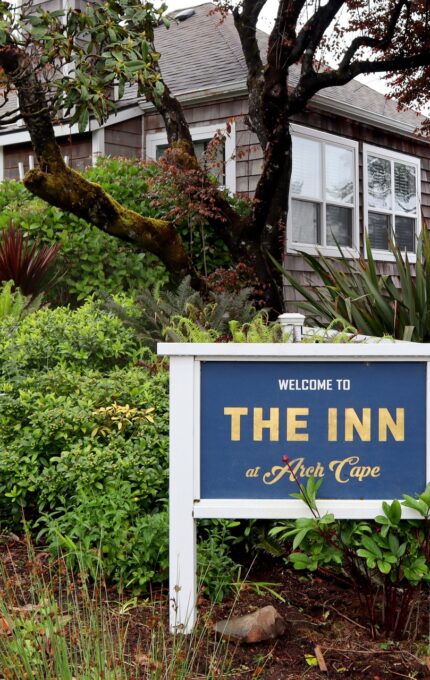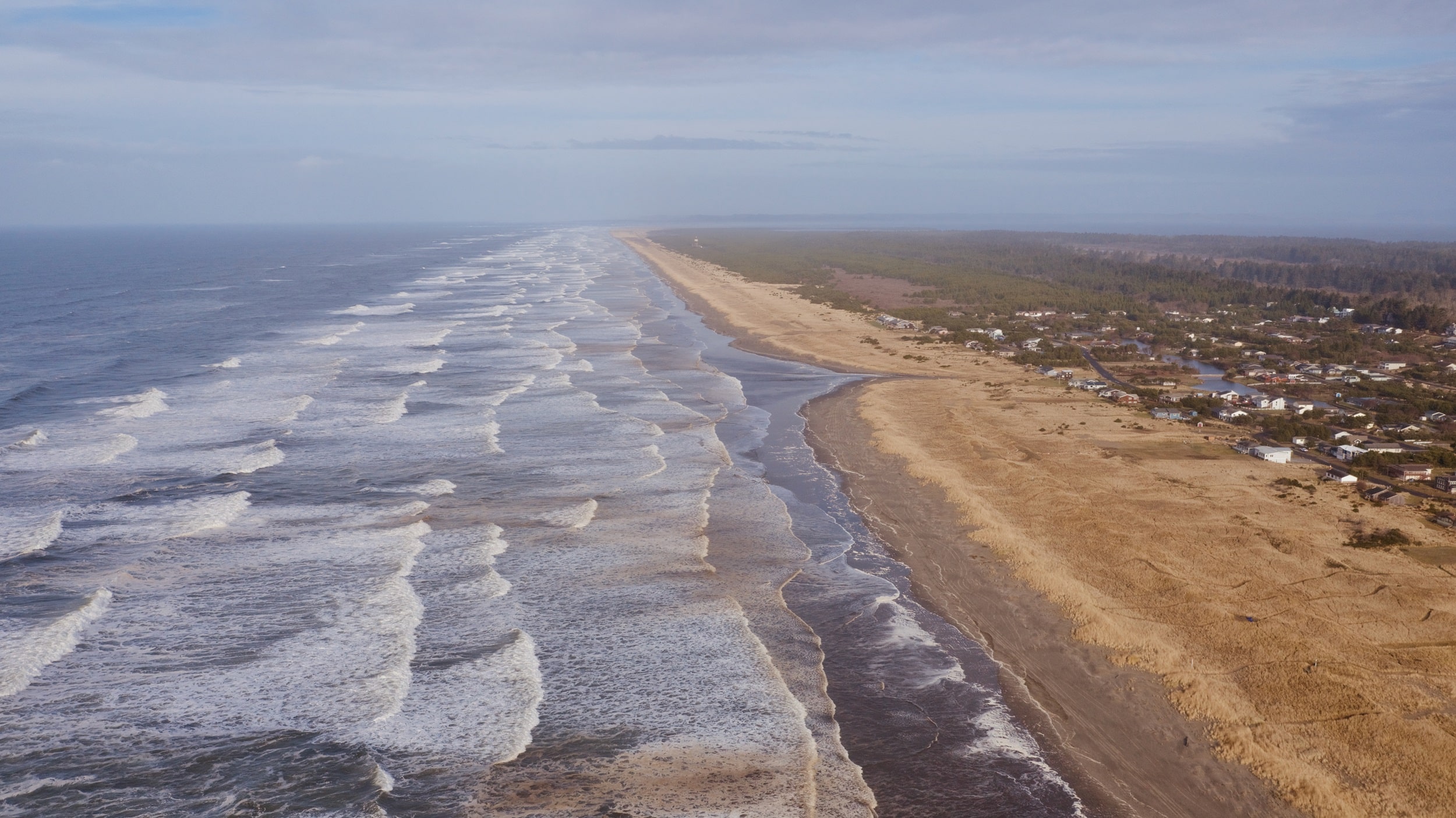
A RARE OREGON COAST PROPERTY
HISTORY
HISTORIC INN AT ARCH CAPE, A COASTAL RETREAT WITH COMMUNITY ROOTS
HISTORY
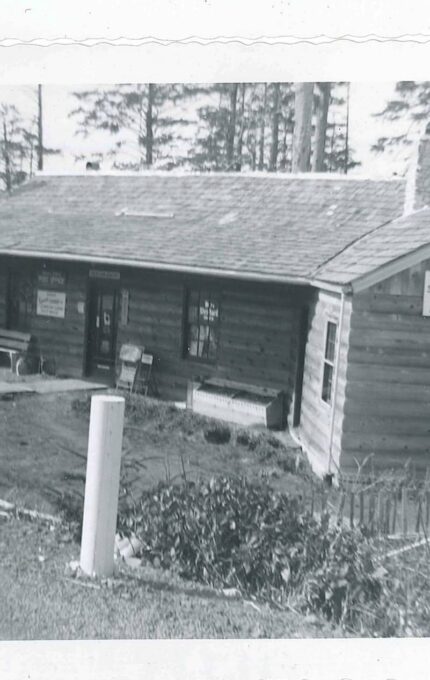
The three-room building was known simply as “The Beach House” in the early years, and later as the “Old Post Office.” The original rooms served as guest cabins, the Arch Cape Post Office and a general store for the community (see photo below). Mrs. Ross White, Ernest White’s mother, ran the post office, a place where the locals would sit by the fireplace (which is still in Room #4) and visit over a cup of coffee, chatting with neighbors as they stopped in to mail a letter or pick up a loaf of bread. It was the soul of the small community five miles south of Cannon Beach, Oregon. In the 1960s, the name was changed to The Inn at Arch Cape.
Its history is intertwined with mail delivery, groceries, a general store, and lodging on the Old Oregon Coast, just south of Cannon Beach.
The original structure was built in 1939 by Ernest White, who constructed his beach house north of the newly excavated Arch Cape tunnel, which completed the final stretch of the Pacific Coast Highway.
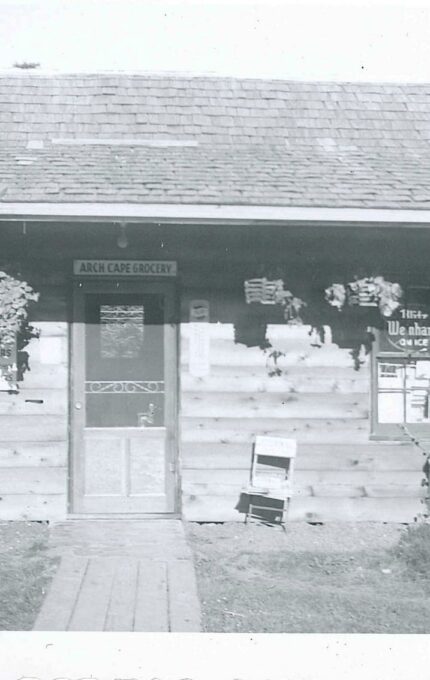
In 1946, the building was enlarged, adding two ocean-side apartments, which were available as nightly rentals. The building changed hands and over the next decade was owned by several families, including Blanche Peckover, and the Hurds, Smiths, and LeGault families. In most cases, the women in the families served as postmistresses for the locals’ mailboxes.
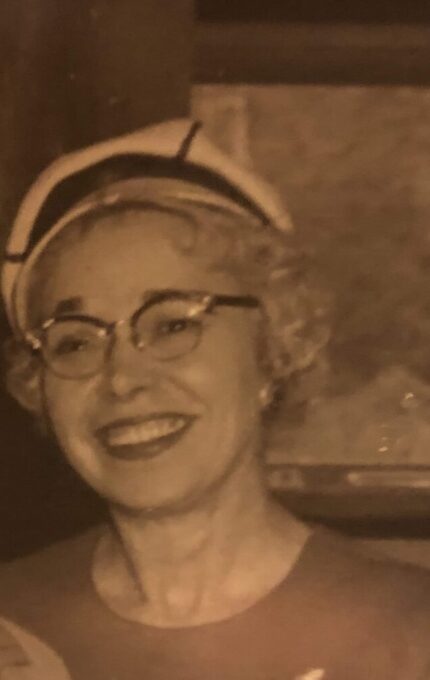
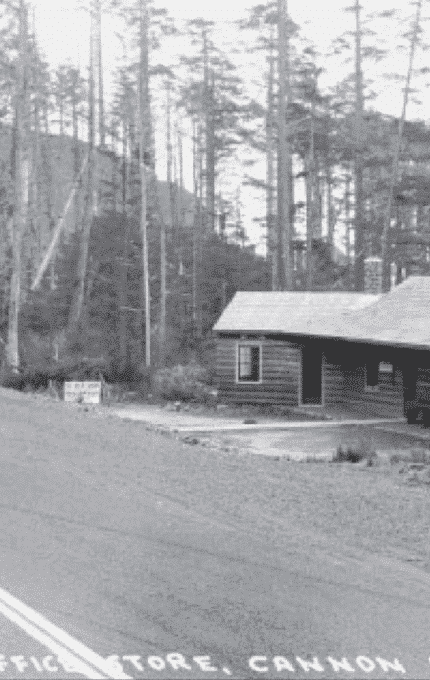
In 1960, Ethel (Beeman) LeGault, a widow who owned the property in the early 1950s, built a larger general store and deli on the property adjacent to the Inn. The deli became the daily stop for local Arch Cape news and gossip. Ethel was a beloved neighbor who successfully managed both the general store and lodging properties until she died in 1972 at the age of 64.
The top floor layout of the Inn has been remodeled over the decades. The original Arch Cape Post Office was situated between what are now Rooms 3 and 4. This space served as the Post Office for the town until 1960, when it was moved to the general store, south of the Inn. New guest rooms, garages, porches, and a fire pit were added over the years, but the Inn has maintained its intimate and cozy appeal.
The Inn at Arch Cape changed hands a few more times, with Bob Turk and Jerry Railton owning the property for a time before Tracy and Henry Hooper bought the property in 2004. The Hoopers worked hard to make the Inn consistent with the style and manner of the north Oregon Coast while adding several modern amenities.
In 2017, the Hoopers sold the Inn to Heather Newman and Chris Anderson, who carried on the property’s proud Oregon Coast tradition until October 2021 when they handed the keys to the current owners, Tiffany and Brady Turner who have reopened and reimagined the Inn as a full property vacation rental.
